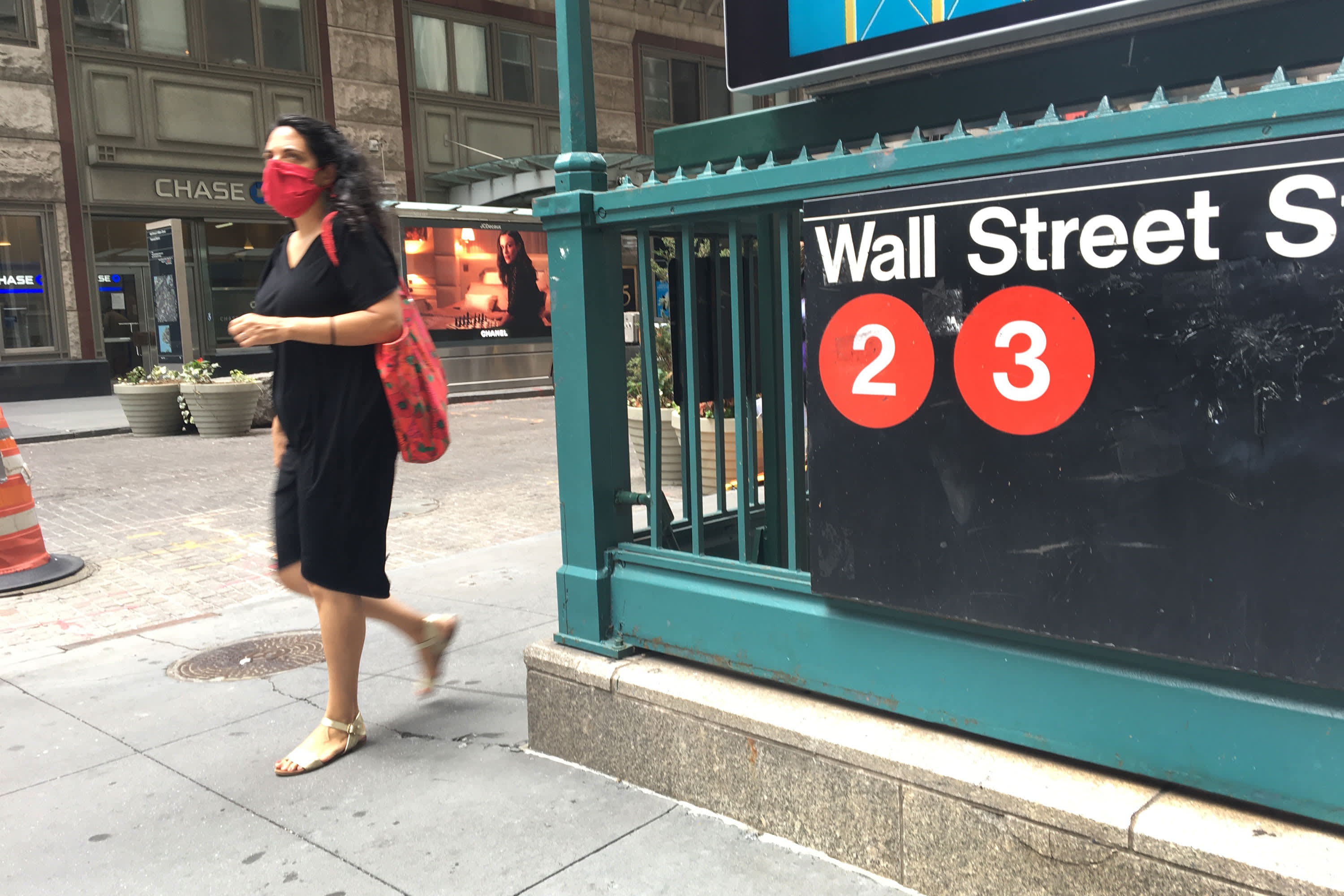
Scott Mlyn | CNBC
Stocks fell slightly on Tuesday as the market took a breather following a sharp rally in the previous session while investors assessed whether this rebound can continue.
The Dow Jones Industrial Average traded 156 points lower, or 0.6%. The S&P 500 dipped 0.4% while the Nasdaq Composite also slid 0.4%.
Shares of airline companies led the declines. JetBlue, American Airlines and United were all down more than 3%. Delta and Southwest pulled back by 2.5% and 2.4%, respectively.
The major averages fell to their lows of the day after Bloomberg News reported the daily positive rate of coronavirus cases is back above 3% for the first time in months.
“We’re not out of the woods year in terms of the coronavirus,” said Peter Cardillo, chief market economist at Spartan Capital Securities. He also noted some investors are taking profits after the market’s solid gains over the previous three sessions.
Tuesday’s decline follows a solid start to the week for stocks during Monday’s session, with the Dow, S&P 500 and Nasdaq Composite popping more than 1% each.
The climb for stocks on Monday came after mixed news about the coronavirus response over the weekend. On the bullish side for the market, Florida lifted capacity restrictions on restaurants over the weekend and Pelosi said she believed another relief bill was still on the table.
However, cases in the U.S. continued to rise once again, with Dr. Anthony Fauci saying on Monday that the U.S. is “not in a good place” as colder weather approaches.
September has been a tough month for traders, with the major averages headed for their first monthly decline since March. Month to date, the S&P 500 has dropped 4.6% and the Dow has lost 3.4%. The Nasdaq is down 5.9% over that time period as shares of big tech companies have struggled.
David Waddell, CEO of wealth strategist firm Waddell & Associates, said that he saw recent weakness for the market as a needed “comeuppance” for major tech stocks and that stocks were set for near-term volatility while the indexes treaded water.
“I think we’re in a sideways period. It’s just we’re going to do it like we’re on a trampoline,” Waddell said. The strategist also said his clients still had a large amount of their assets in cash, suggesting potential support for the market.
Political news is poised to potentially be a driver of market news this week, with the first debate between President Donald Trump and Democratic nominee Joe Biden set for Tuesday night. Some Wall Street analysts believe the first debate of this cycle could be more consequential for the markets than most debates, with a clear victory by one candidate possibly creating significant market moves.
House Speaker Nancy Pelosi said on Monday night that the Democrats were unveiling a new $2.2 trillion stimulus package, smaller than the more than $3 trillion proposed earlier in the crisis but still well above what Republican leaders have offered. The new bill would include enhanced unemployment benefits and aid to airlines and state and local governments, according to a summary.
In economic news Tuesday, The Conference Board said consumer confidence jumped much more than expected, hitting a print of 101.8 for September. Economists polled by Dow Jones expected consumer confidence to rise to 90.1 from 86.3 in August.
Don’t miss CNBC and Institutional Investor’s Delivering Alpha conference on September 30, featuring Treasury Secretary Steven Mnuchin, Senator Elizabeth Warren, Alibaba’s Joseph Tsai, Vista Equity Partners’ Robert Smith, J.P. Morgan’s Mary Callahan Erdoes, Inclusive Capital’s Jeff Ubben and more.




